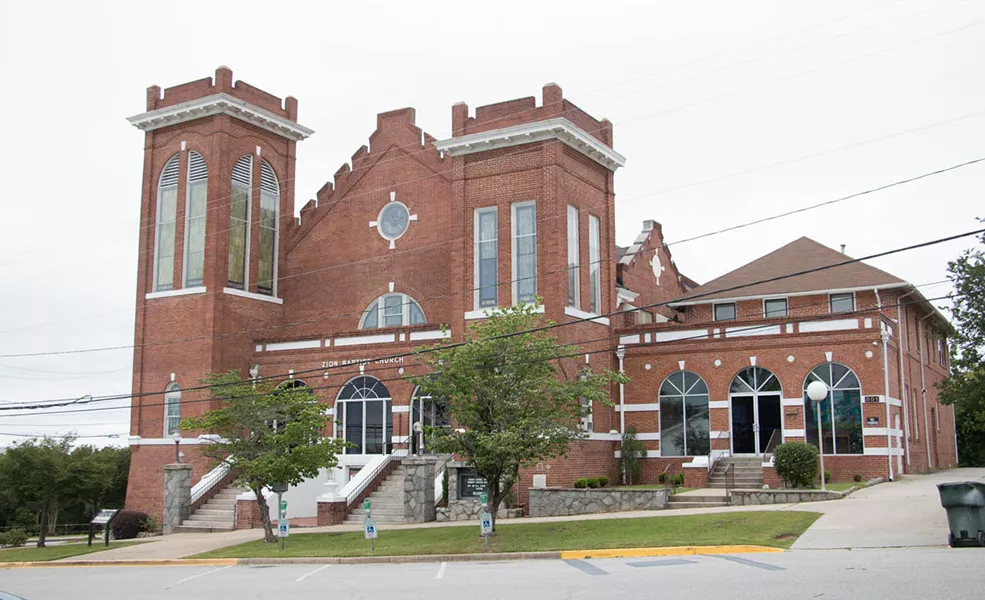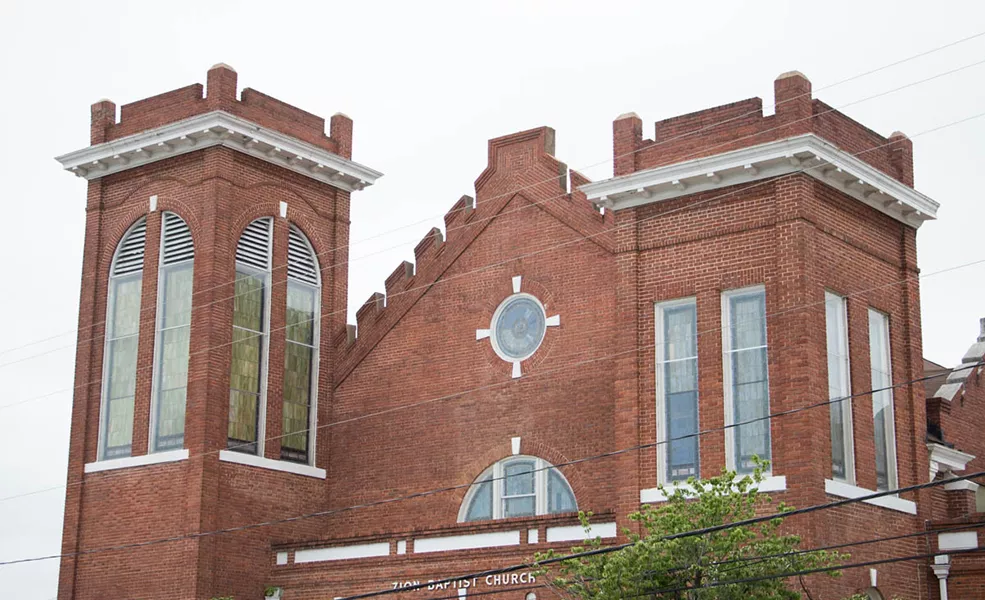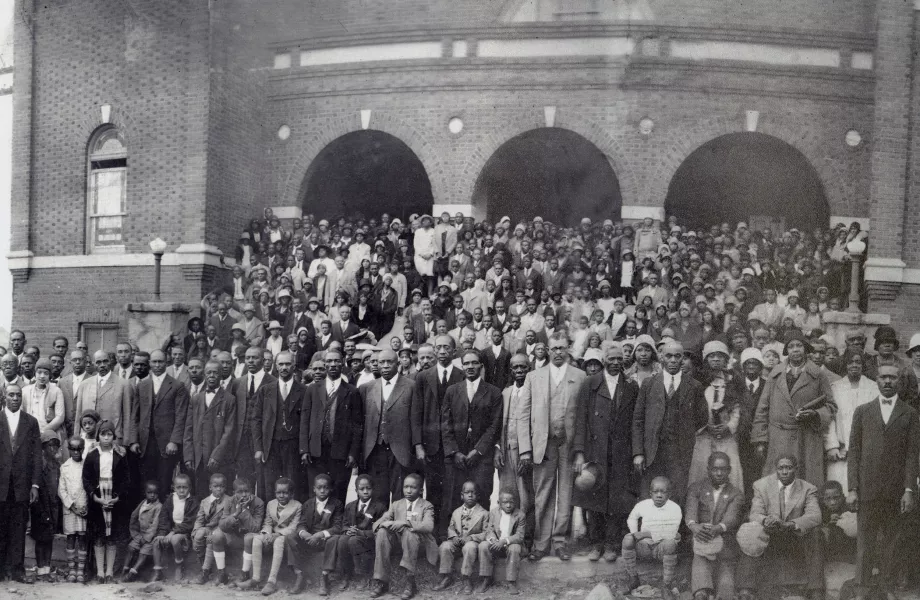801 Washington Street
Zion Baptist Church, established in 1865 and led by Reverend Frank Dobbins, was one of two congregations that grew out of the enslaved membership of Columbia’s white Baptist Church. Dobbins, who was born enslaved about 1801, led Zion Baptist until his death in 1886. During Reconstruction, the church purchased this lot from the state and constructed a wooden building that housed the congregation for more than 40 years. In 1913, newly installed/elected pastor Rev. J.C. White began hosting fundraising rallies for the construction of a new building to accommodate the rapidly growing congregation. The cornerstone was laid in 1916 and the building was completed the following year at a cost of $40,000. Designed by architect Arthur W. Hamby, this German Gothic structure was known as “Big Zion” and featured an auditorium and gallery with seating for 1,800, which was already too small to seat the 2,000-member congregation. Its basement included nine classrooms and a “kitchen and demonstration room” for educating women in domestic science.
On the evening before it opened for worship, Rev. White spoke of its purpose:
“The new house of worship is an evidence of civic pride and a testimonial of religious zeal and loyalty. It has been reared at the cost of personal sacrifices which in the aggregate are immense. Through and by these sacrifices, our people have been well schooled in the practice of self-help and sturdy independence.” (The State, April 22, 1917)
Continuing the tradition of organizing begun by Rev. White, Big Zion became a central location for meetings, conferences, and fundraisers during the civil rights era. Major groups who met here include: the Progressive Democrats, the Negro Citizens Committee, the SC NAACP, and the Richland County Citizens Committee. In 1952, 700 people rallied here during an SC NAACP meeting, which called for the group to raise $10,000 to further the case of Briggs v. Elliott to the US Supreme Court. Nine years later, 187 African American students and two civil rights leaders met at Big Zion to begin Columbia’s largest peaceful demonstration against segregation. Their subsequent arrest at the State House became Edwards v. South Carolina, a landmark Supreme Court case on First Amendment rights.


